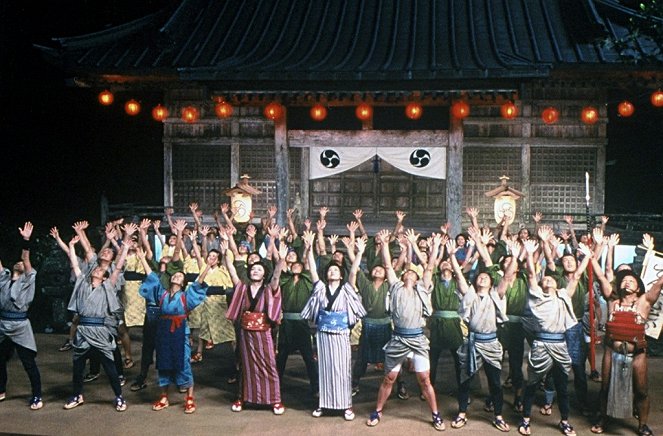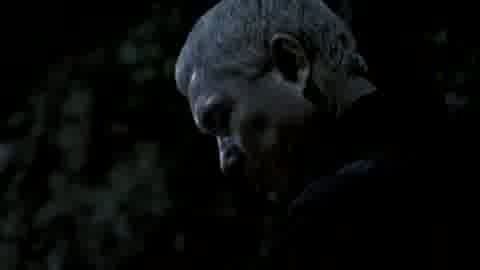Réalisation:
Takeshi KitanoScénario:
Takeshi KitanoPhotographie:
Katsumi YanagijimaMusique:
Keiichi SuzukiActeurs·trices:
Takeshi Kitano, Michiyo Ookusu, Taka Guadalcanal, Daigorō Tachibana, Yūko Daike, Yui Natsukawa, Ittoku Kishibe, 石倉三郎, Akira Emoto, Hideboh (plus)VOD (1)
Résumés(1)
Japon, 19ème siècle. Zatoichi est un voyageur aveugle gagnant sa vie comme joueur professionnel et masseur. Mais derrière son humble apparence, il est un redoutable combattant, rapide comme l'éclair et dont les coups s'avèrent d'une stupéfiante précision. Alors qu'il traverse une montagne, il découvre une petite ville entièrement sous la coupe d'un gang. Son chef, Ginzo, se débarrasse de tous ceux qui osent se dresser sur son chemin, d'autant plus efficacement qu'il a engagé un redoutable ronin, Hattori. Dans un tripot, Zatôichi rencontre deux geishas, aussi dangereuses que belles. Okinu et sa soeur Osei vont de ville en ville à la recherche du meurtrier de leurs parents. Elles possèdent pour seul indice un nom mystérieux : Kuchinawa. Lorsque Zatôichi rencontre les hommes de mains de Ginzo, l'affrontement est inévitable... (ESC Distribution)
(plus)Vidéo (2)
Critiques (3)
My first historical Takeshi movie. He acts even more cool and calmly than I am used to. It looks into the past in cinematic terms too, harking back to Kurosawa, mixing in some contemporary styles too. Great duels, and typical humor.
()
I am often drawn to contemporary Japanese films and I can give them the highest rating without any problems. However, historical themes, and especially samurai films completely miss the mark for me. I usually can't empathize with the mentality of the characters, and emotionally, the film kind of slips through my fingers, including the most famous names like Kurosawa. The Blind Swordsman: Zatoichi is Kitano's contribution to the genre so popular in Japan, and he uses traditional exaggeration, when the protagonist easily defeats dozens of opponents, blood splatters everywhere, and the outcome of the battle is usually decided by a single chosen warrior. It is full of rituals derived from another culture, sometimes pathetic, sometimes naive, and practically always very exaggerated. The rational part of me views such productions with strong disdain, but fortunately, Kitano's ironic detachment helps, with jokes that undermine and wink at the story, as well as the viewer and genre fan. In addition, the film is adorned with examples of local culture, so we experience the end of the film in the spirit of a folk celebration. It also reminded me of my teenage years when I devoured similar films such as The Hunchback of Paris and The Blind Swordsman: Zatoichi can be described as a romanticizing film of similar quality, aimed at a similar consumer. I thus give it 3 stars and an overall impression of 55%.
()
The Blind Swordsman: Zatoichi is a true revelation. Ignore the media presentation, trailer and many comparisons to Tarantino's Kill Bill. Zatoichi is not a "popcorn" film, it is not a film to gorge yourself on, but rather it is a good film sake, which must be drunk in small sips and enjoyed. A gourmet experience. It's a film about the rhythm of life, about sweet stereotypes and harmony, which sometimes needs to be protected by very brutal means. Blind masseur Zatoichi literally shuffles through the story (it's a classic myth that goes from somewhere to somewhere), corrects evil and disappears somewhere again. But much more than a "western plot", this film is full of kind humor, meditative pondering about human things and the phenomena of Japanese culture. If you want to know about the Japanese soul, culture and samurai tradition, Kitano is the right guide for you. The battles are just the icing on the cake - brilliant, basically conservatively realistic. And the whole film is beautifully slow, ponderous, wise... I'm sure it doesn't have the gift to take your breath away, but it certainly has the gift of pleasing. And that's just right from my point of view.
()
Photos (32)
Photo © Celluloid Dreams




Annonces